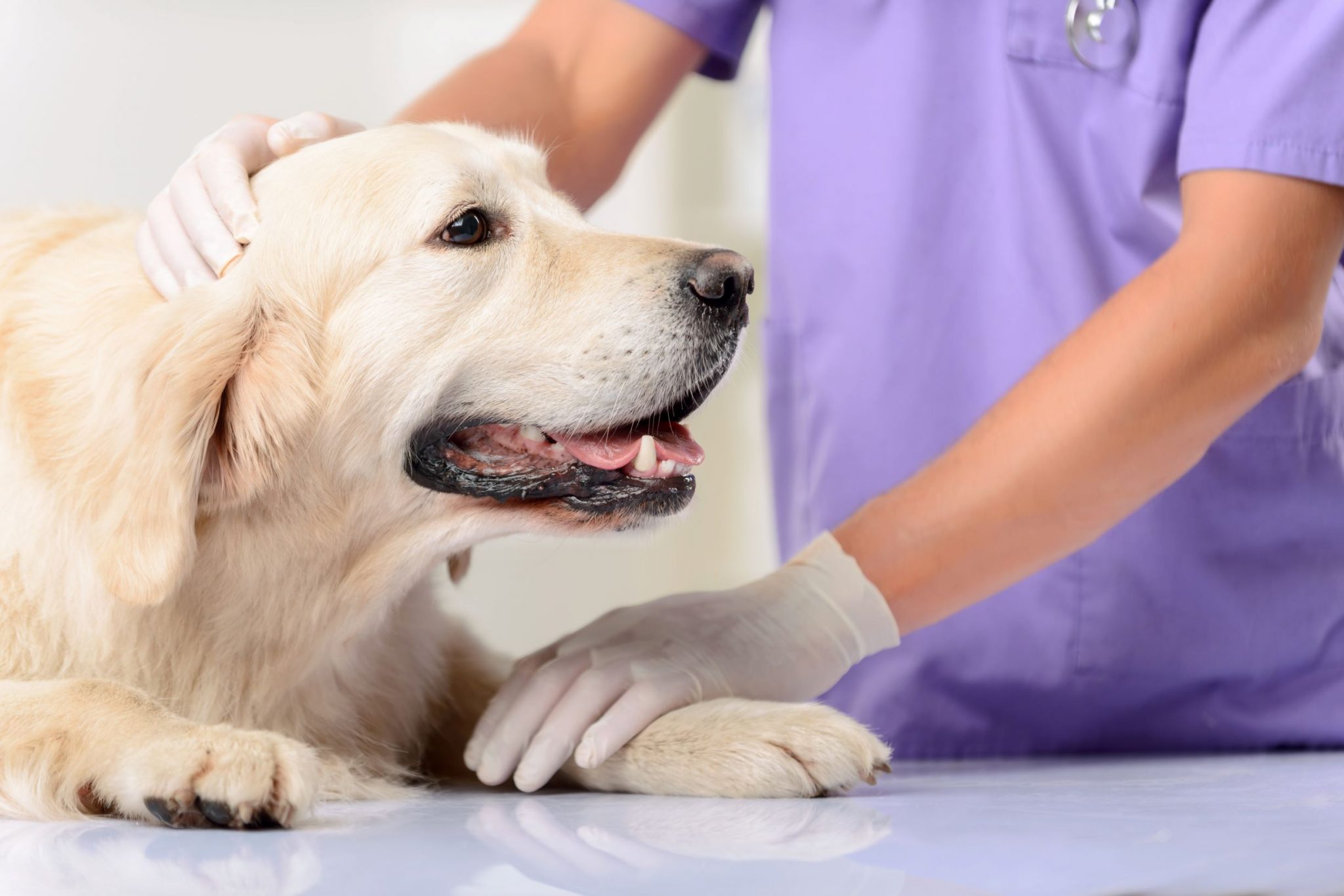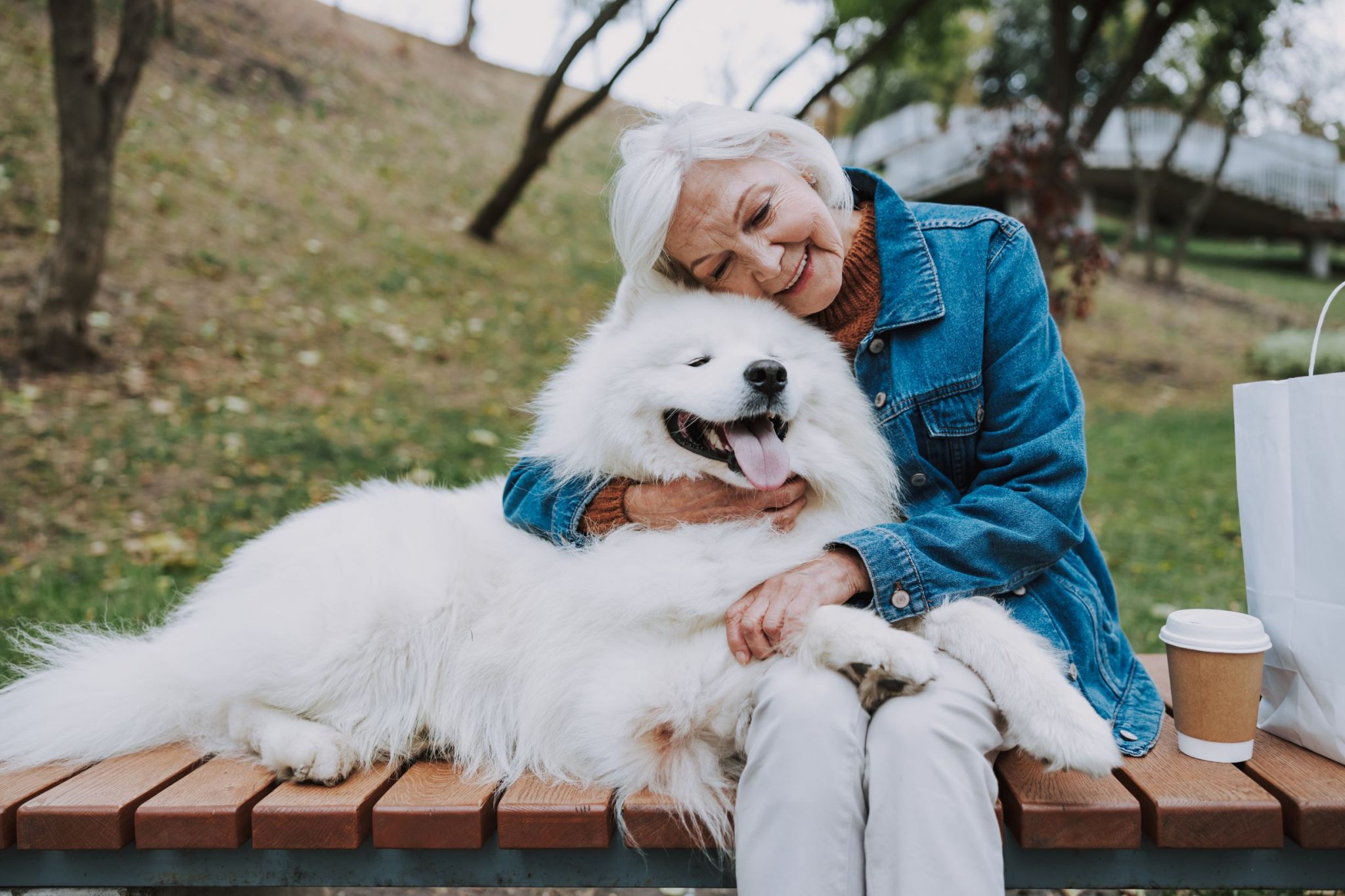The COVID-19 pandemic has been here for more than a year, but many questions still need answers. While most COVID-19 research focuses on the disease in people, studies about COVID-19 and animals are also underway. COVID-19 is not likely to be eradicated, which means it will continue to be an issue for years to come. As a concerned pet owner, you want to do everything possible to ensure your pet’s long-term health, including keeping them free from infectious diseases. To help keep your pet and family safe, we have compiled the latest facts about COVID-19 and pets.
What causes COVID-19?
COVID-19 is caused by a coronavirus, specifically SARS-CoV-2. Coronaviruses are a family of viruses that can infect people and animals. Some coronaviruses are species-specific, whereas others can cross from one species to another. The SARS-CoV-2 virus is believed to have originated in an animal, most likely a bat [1].
Several common canine and feline diseases are caused by species-specific coronaviruses. In dogs, a respiratory coronavirus strain (CRCoV) causes respiratory infection, while an enteric strain (CCoV) causes gastrointestinal (GI) disease. In cats, a separate enteric coronavirus strain causes GI disease, and a mutation is responsible for feline infectious peritonitis (FIP). These are different from the SARS-CoV-2 virus that causes COVID-19.
Can pets become infected with COVID-19?
Over the course of the pandemic, it has become apparent that the SARS-CoV-2 virus can be transmitted from people to pets in some situations. However, the number of pet cases is extremely low compared with the number of human cases, with only 115 cats and 81 dogs testing positive for COVID-19 globally as of February 2021 [2]. Many positive pets were diagnosed through surveillance screening conducted in households with COVID-19 positive people, and not because the pets were showing illness signs [3]. Based on the few positive pet cases, infection under natural conditions appears rare. Fortunately, most pets who have tested positive for COVID-19 have been asymptomatic, or showed only mild clinical signs, and no pet deaths have been reported [4].
To date, there have been no reports or evidence that pets can transmit the SARS-CoV-2 virus to people.
Can pets transmit the virus to people?
To date, there have been no reports or evidence that pets can transmit the SARS-CoV-2 virus to people. Although research is ongoing and new variants may behave differently, the Centers for Disease Control and Prevention (CDC) believes the risk of pets spreading the virus to people is low [1].
COVID-19 is mainly spread via respiratory droplets when infected people cough, sneeze, talk, or breathe. Animals do not seem to play a role in the disease spread.

Can pets carry the virus on their skin or fur?
Although some bacterial species can persist on an animal’s skin or fur, no evidence has been found that viruses, including the SARS-CoV-2 virus, can be passed to people this way [5]. However, out of an abundance of caution, you should always wash your hands after handling pets, particularly those who belong to other people. Also, never use hand sanitizer or sanitizing wipes on your pet’s fur or skin, as the chemicals can burn their skin or cause toxicity if they are accidentally ingested.
Should pets be vaccinated against COVID-19?
Since pets do not easily acquire COVID-19 infection or develop significant disease, vaccination is not necessary at this point. If a pet does become infected with COVID-19, their immune system should eliminate the disease with few or no complications.
Should my pet be tested If I have COVID-19?
Although infection is possible, your pet will probably not contract COVID-19, and testing is not necessary. Fortunately, pets who do contract the disease are typically asymptomatic, and do not seem to be an infection source for other pets or people. Surveillance screening is occurring in some areas, but pets living with COVID-19-positive people are not routinely tested.
Although some bacterial species can persist on an animal’s skin or fur, no evidence has been found that viruses, including the SARS-CoV-2 virus, can be passed to people this way.
What should I do if my pet is sick?
If your pet develops respiratory signs, including coughing, fever, lethargy, nasal discharge, or difficulty breathing, your family veterinarian should evaluate them right away. Although a COVID-19 infection is unlikely, a number of health problems that require immediate treatment can cause respiratory signs. If your pet has been in contact with someone who has COVID-19, alert the veterinarian before your visit so they can take proper precautions. In some situations, testing for COVID, and for more common respiratory pathogens, may be appropriate.

Can I care for my pet if I have COVID-19?
If you have been diagnosed with COVID-19, you should limit contact with your pet, but you do not need to remove them from your home. If possible, ask another household member to take over your pet’s daily care, including feeding and grooming. If you are your pet’s only caretaker, take the following precautions:
- Avoid close contact, such as snuggling or sleeping with your pet.
- Wear a face covering when caring for your pet.
- Wash your hands before and after handling your pet.
How are veterinary hospitals controlling COVID-19 spread?
Most veterinary hospitals across the world have remained open to provide essential pet care, but many have instituted curbside visits to reduce the risk of COVID-19 spread among people. Pet owners are asked to wait in their vehicles rather than accompany their pets inside the hospital, where veterinary exam rooms are often small, and social distancing to keep pet owners and veterinary staff adequately protected is not possible. The veterinary team typically communicates with pet owners via phone or video chat throughout curbside appointments.
Although new information about the pandemic emerges daily, your pet’s risk is unlikely to change. Keep up with the latest information about COVID-19 and pets with reputable veterinary resources, such as the CDC and American Veterinary Medical Association (AVMA).

Sources:
[1] Centers for Disease Control and Prevention (2021). COVID-19 and animals. Accessed March 24, 2021. https://www.cdc.gov/coronavirus/2019-ncov/daily-life-coping/animals.html
[2] American Veterinary Medical Association (2021). SARS-CoV-2 in animals. Accessed March 24, 2021. https://www.avma.org/resources-tools/animal-health-and-welfare/covid-19/sars-cov-2-animals-including-pets
[3] Hamer S. A., Pauvolid-Correa A., Zecca I. B., et al. (2020). Natural SARS-CoV-2 infections, including virus isolation, among serially tested cats and dogs in households with confirmed human COVID-19 cases in Texas, USA. BioRxiv, Cold Spring Harbor Laboratory. https://www.biorxiv.org/content/10.1101/2020.12.08.416339v1
[4] Centers for Disease Control and Prevention (2021). What to do if your pet tests positive for the virus that causes COVID-19. Accessed March 24, 2021. https://www.cdc.gov/coronavirus/2019-ncov/daily-life-coping/positive-pet.html
[5] United States Food and Drug Administration (2021). Helpful questions and answers about coronavirus (COVID-19) and your pets. Accessed March 24, 2021. https://www.fda.gov/consumers/consumer-updates/helpful-questions-and-answers-about-coronavirus-covid-19-and-your-pets

